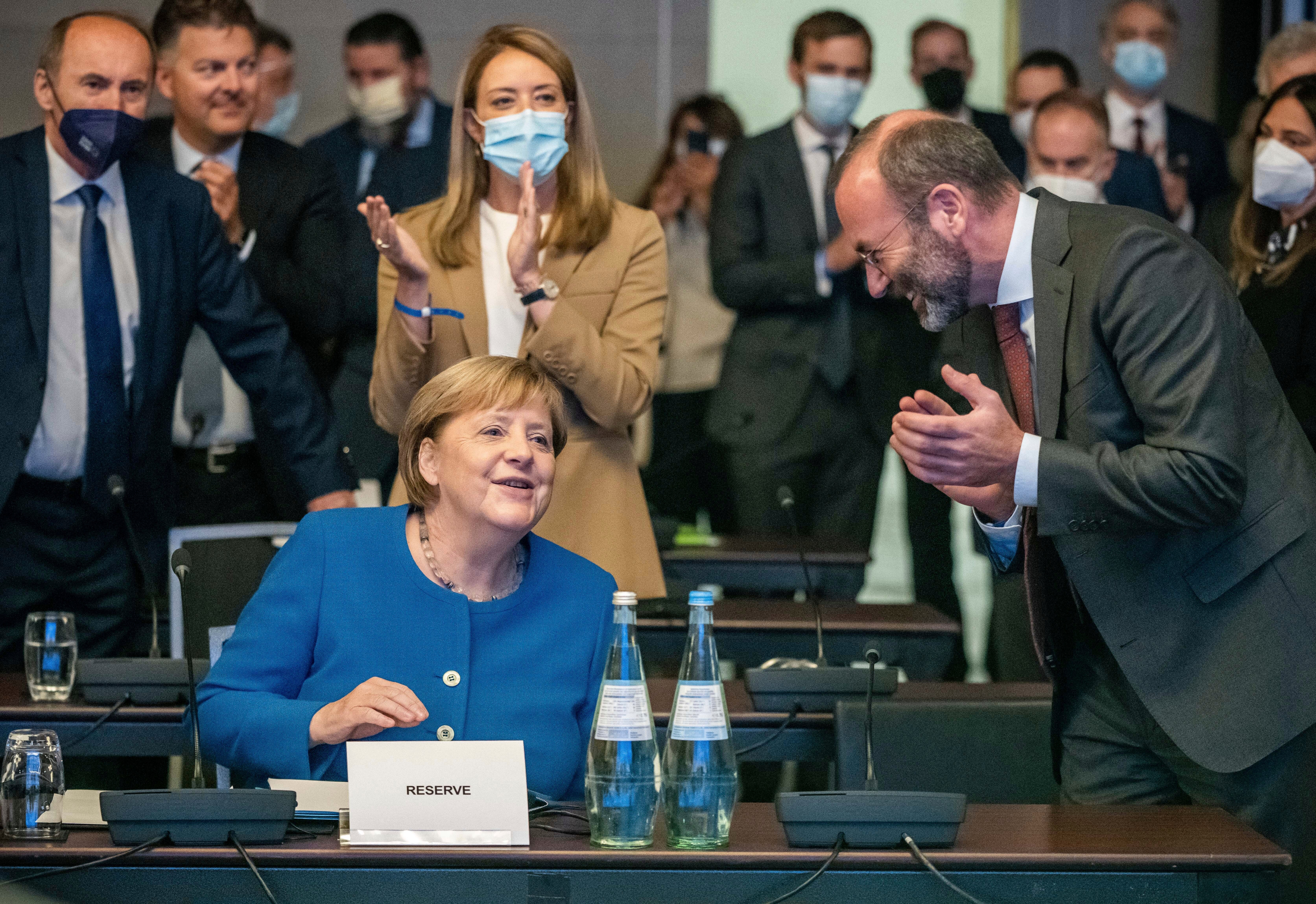Merkel: Party was always aware it faced fight in German vote
Chancellor Angela Merkel says her party is fighting and was always aware that it wouldn’t “automatically” hold on to Germany’s top job after her 16 years in power

Chancellor Angela Merkel said Thursday that her party is fighting and was always aware that it wouldn't “automatically” hold on to Germany's top job after her 16 years in power, downplaying alarming poll ratings as the country's election nears.
Recent polls have shown Merkel's Union bloc under would-be successor Armin Laschet in second place behind the center-left Social Democrats with very low support of around 20%. It is running short of time to turn things around before the Sept. 26 parliamentary election.
Merkel has largely stayed out of the campaign, though she has made a number of interventions lately — most recently, assailing the possibility of a future left-wing administration and trying to boost Laschet in an unusually partisan speech to parliament on Tuesday.
Asked at a news conference Thursday whether she was worried about her record being sullied by her party losing the chancellery, Merkel replied that “we are in the middle of the election campaign and I can see that (it is) really fighting.”
She added that what happens on election day counts, so she won't speculate.
“It was clear to everyone in the CDU and CSU that we wouldn't get into the chancellery again automatically and without effort after 16 years,” Merkel said, using the acronyms of the two parties that make up the Union bloc.
The Social Democrats have benefited from the relative popularity of their candidate, vice chancellor and Finance Minister Olaf Scholz, in the first election since 1949 in which there is no incumbent seeking reelection. Scholz lately has tried to portray himself as Merkel's natural successor, even though he belongs to a different party.
At the same time, the Union has issued increasingly frequent warnings that Scholz, a centrist figure, would form a coalition including the hard-left opposition Left Party, which dislikes NATO and opposes German military missions abroad. Scholz hasn't ruled that out, but it clearly is not his favored option.
Asked what she appreciates about Scholz, Merkel replied tersely: “that when we discuss and agree on something with each other, we both keep to it.”
___
Follow AP’s coverage of Germany’s election at https://apnews.com/hub/germany-election